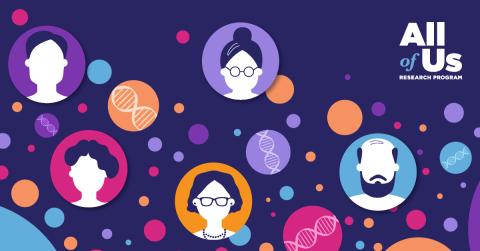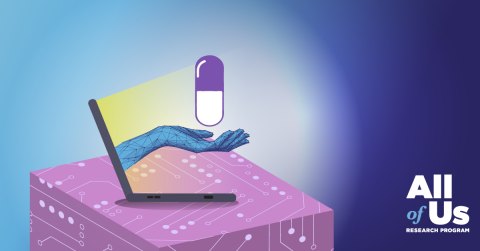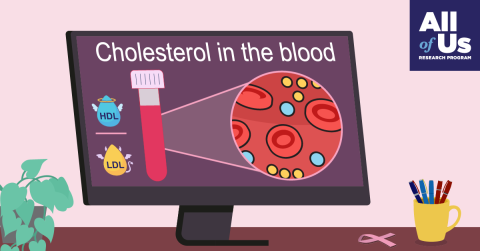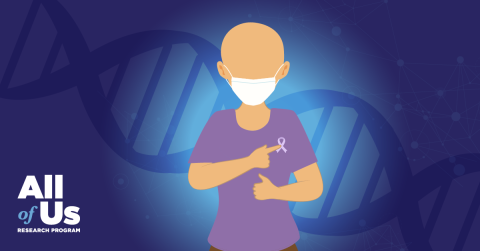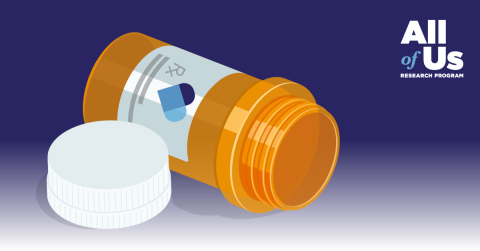All of Us is shaping how we understand health and disease. Research Highlights showcase the recent research powered by All of Us data and tools.
Featured Highlight
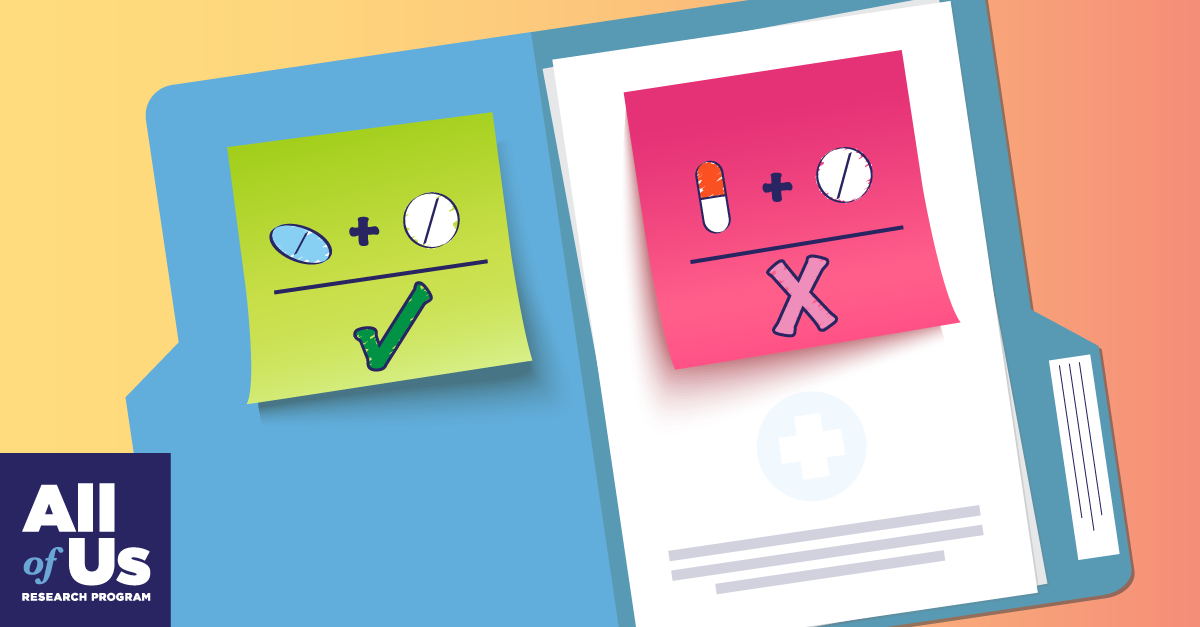
Checking Medicine Safety With All of Us
Researchers looked at All of Us and another database to learn more about medicine safety. They found five pairs of medicines that were linked to major health problems when taken at the same time. Large health datasets could give researchers a new way to study which medicines are safe to take together.
All of Us Helps Find Hidden Patterns in Type 2 Diabetes
DNA data helped explain why type 2 diabetes is so complex. Researchers found eight subgroups of type 2 diabetes, each with its own genetic patterns. Each pattern indicates the likely cause of type 2 diabetes, and some point to possible health effects, such as heart disease and kidney disease.
All of Us and Artificial Intelligence Help Speed Up the Search for Promising Medicines
Artificial intelligence and All of Us may help speed up the time it takes to find medicines to treat health conditions. Researchers used ChatGPT to quickly identify existing medicines that might help prevent Alzheimer’s disease. They then looked at All of Us and another large health dataset to confirm that three of these medicines are worth studying in people.
What All of Us Shows About Cholesterol and Breast Cancer Risk
Researchers looked at All of Us data to better understand whether cholesterol affects breast cancer risk. High levels of some cholesterol measures were linked to an increased risk of breast cancer. But for other measures, it is not so simple.
Rare Finding in All of Us Data Affects DNA Testing for Certain Cancer Drugs
Experts thought that two variants in the DPYD gene always occurred together. A recent study of DNA data from more than 245,000 All of Us participants found that the variants do not always occur together. This finding has changed how health care providers use DNA tests to decide on the right dose of certain cancer treatments.
All of Us Data Shows That Many People With Diabetes Are Undertreated
Researchers looked at All of Us data to study whether people with diabetes are getting statins and other medicines to reduce their risk of heart disease and stroke. About half of the participants were not. Thanks to All of Us participants, we now know more about the need for better management of heart disease risk in people with diabetes.
